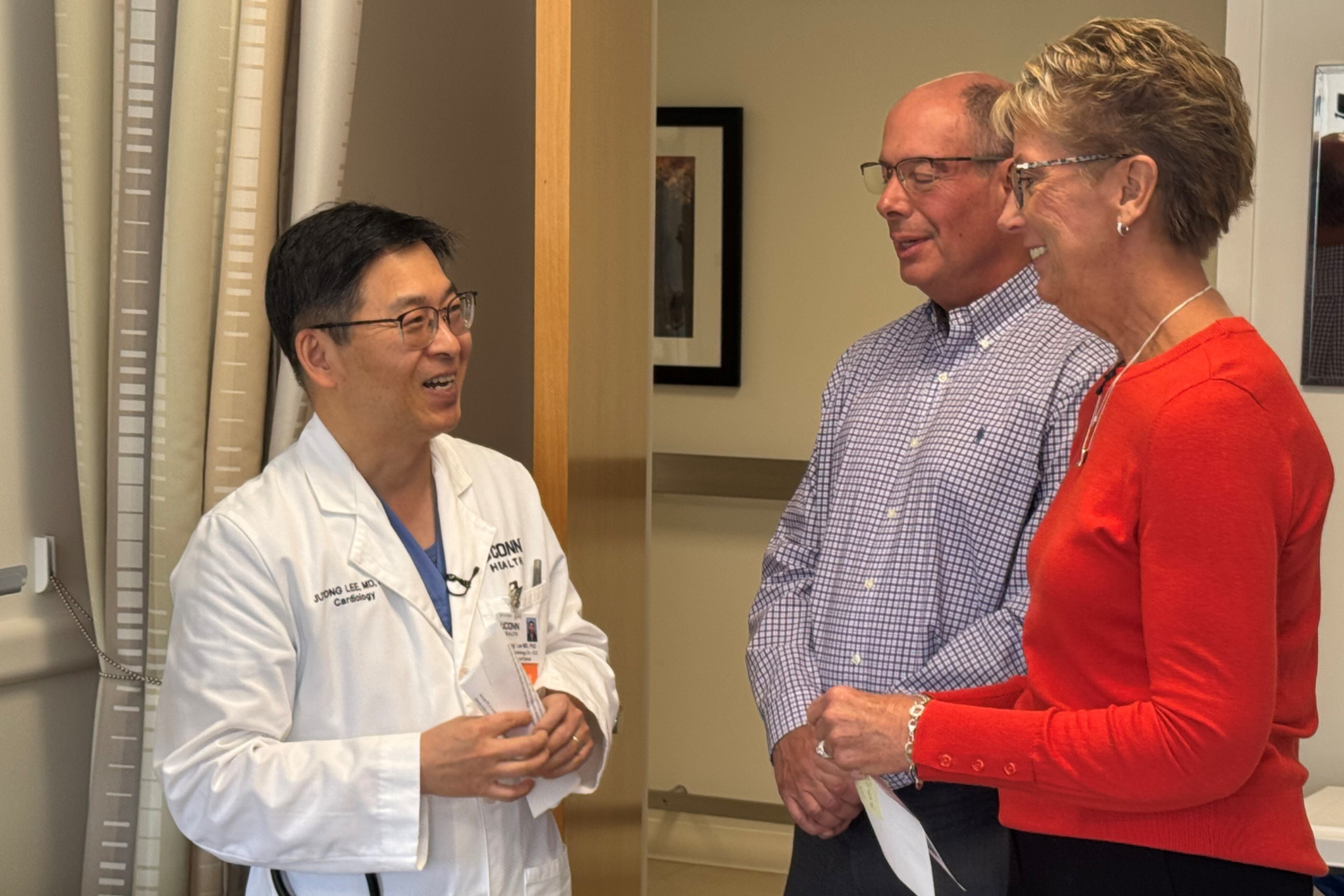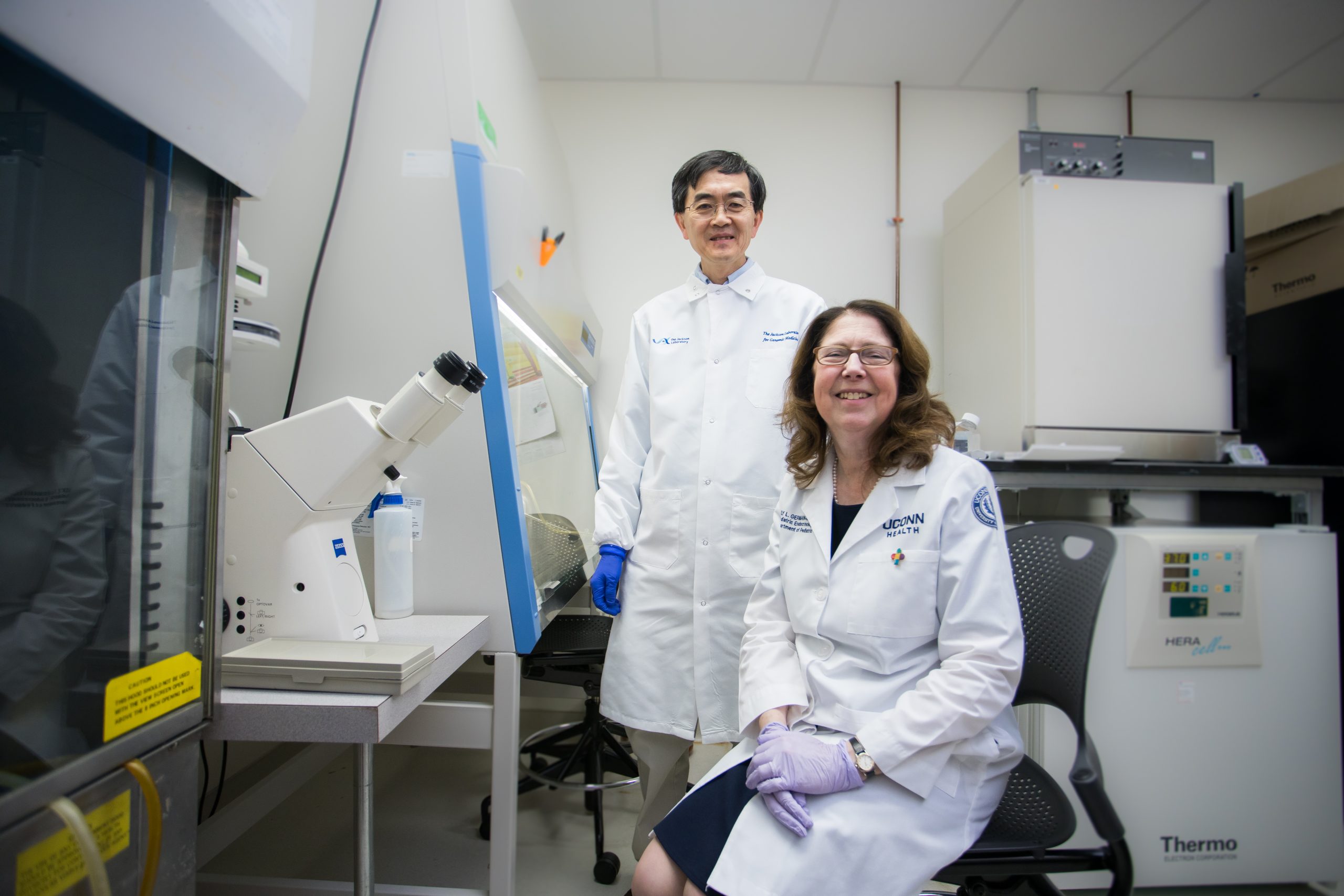D. Betsy McCoach is the recipient of the highest honor a researcher of gifted education can receive: the Distinguished Scholar Award from the National Association for Gifted Children. The NAGC recently announced McCoach’s accomplishment, placing her among some of the most renowned researchers in the field.
“This is a huge honor,” says McCoach, who is a professor in the Department of Educational Psychology’s Research Methods, Measurement, and Evaluation program, as well as the University’s new multidisciplinary master’s in data science program. “I am following in the footsteps of some of the biggest names in gifted education, including many who are also my colleagues at the Neag School.”
The NAGC names a Distinguished Scholar once a year, presenting the honor to a person who has made “significant contributions to the field of knowledge regarding the education of gifted and talented individuals,” according to the association’s website. The recipient must have made contributions to the field for more than 10 years and have an active, productive, peer-recognized scholarly record.
As part of the award, McCoach will be a featured speaker at the NAGC Annual Convention in November. The title of her talk is “How can we answer the most fundamental questions in gifted education?”
UConn researchers and alumni have been the recipients of many NAGC awards over the years. McCoach is the seventh Neag School faculty member to receive the Distinguished Scholar Award since 1980. Joseph Renzulli, namesake of the Renzulli Center for Creativity, Gifted Education, and Talent Development, received the award in 1984; Sally M. Reis and Alexinia Baldwin were recognized in back-to-back years in 2003 and 2004; Jonathan Plucker received the award in 2013; Del Siegle was recognized in 2018; and E. Jean Gubbins was the most recent recipient in 2021.
“I am following in the footsteps of some of the biggest names in gifted education, including many who are also my colleagues at the Neag School.”
McCoach’s areas of expertise uniquely combine gifted education and quantitative methodology. A Ph.D. graduate of the Neag School, she earned her doctorate in gifted education and school psychology during an era when the Neag School did not offer a Ph.D. in research methods, measurement, and evaluation.
McCoach says she was drawn to statistics, measurement, and research methods early on, and during her Ph.D. she worked with David A. Kenny, Ann O’Connell, and Robert K. Gable to develop her expertise in structural equation modeling, multilevel modeling, instrument design, and quantitative methodology. As a researcher, she has combined her expertise in modeling and quantitative methods with her background in gifted education research to produce rigorous quantitative research in the field of gifted education, and she has inspired a new generation of researchers to do the same.
McCoach has published over 100 peer-reviewed journal articles, as well as numerous book chapters and several books. She also served as the editor of Gifted Child Quarterly, the flagship journal for NAGC, from 2012-2017. McCoach is currently co-principal investigator and lead methodologist for the National Center for Research on Gifted Education and her latest research project tackles the issue of identifying gifted children, especially those from underrepresented populations, in classrooms.
Her hope is that by examining various student information – cognitive data, achievement data, and teacher feedback and ratings – in a variety of combinations her team can uncover more equitable methods to identify gifted learners. McCoach also plans to dive more deeply into teacher feedback and ratings of gifted children to determine how much teacher variability in ratings can influence the identification process.
“I am thrilled to be recognized by the NAGC,” McCoach says. “I also want to thank Sally Reis and Catherine Little for nominating me, and Sally – who was my major advisor for my Ph.D. – Joe, Del, Jean, Catherine, and the entire Renzulli Center for all their support and mentorship over the past 24 years. It has been challenging to straddle two different fields (quantitative methodology and gifted education), so being recognized in this way by the field of gifted education is such an honor.”
To learn more about the Neag School of Education, visit education.uconn.edu. Follow the Neag School on Instagram, Facebook, Twitter, and LinkedIn.



